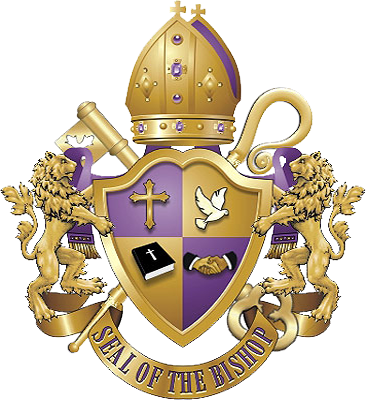The First Bishops of the New Testament
Church: Their Lives and Contributions
Lesson 5.1: Who Was Origen of Alexandria?
Origen of Alexandria is one of the most fascinating and influential figures in early
Christian history. To understand his significance, we must first explore his background,
his passion for scripture, and his role in shaping the early church.
Origen was born around 185 AD in Alexandria, Egypt, a city renowned for its
intellectual and cultural vibrancy. Alexandria was home to the famous library, a hub of
knowledge, and a melting pot of diverse philosophies and religions. Growing up in this
environment, Origen was exposed to a wide range of ideas, which would later influence
his theological work. He was born into a Christian family, and his father, Leonides,
played a pivotal role in nurturing his spiritual and intellectual development. Leonides
ensured that Origen was deeply rooted in the study of scripture, fostering a love for the
Bible that would define his life. This early foundation laid the groundwork for Origen’s
lifelong pursuit of understanding and interpreting scripture.
Origen’s life took a dramatic turn when he was still a teenager. During Emperor
Septimius Severus’ persecution of Christians, his father was arrested and ultimately
martyred for his faith. This event had a profound effect on young Origen. According to
historical accounts, he was eager to join his father in martyrdom, but his mother
prevented him by hiding his clothes to keep him from leaving the house. Despite this,
Origen remained resolute in his faith. With his father gone, he became the primary
provider for his family, taking on the responsibility of supporting his mother and six
younger siblings. This period of hardship and sacrifice shaped Origen’s character and
cemented his commitment to the Christian faith.
Origen’s intellectual brilliance quickly became evident. By the time he was in his late
teens, he was already a respected teacher and scholar. He was appointed head of the
catechetical school in Alexandria, a position that allowed him to train new converts and
deepen his own theological understanding. Under Origen’s leadership, the school
flourished, attracting students from across the Roman Empire. He was known for his
rigorous teaching methods, emphasizing the study of scripture alongside Greek
philosophy. For Origen, the two were not mutually exclusive but complementary. He
believed that reason and faith could coexist harmoniously, and he sought to use
philosophical tools to deepen the understanding of Christian doctrines.
One of Origen’s defining characteristics was his unrelenting passion for scripture. He
viewed the Bible as a divine text, rich with layers of meaning. For Origen, scripture was
not just a historical record or a collection of moral teachings; it was a living document,
inspired by God, containing profound truths about human existence and the divine. He
approached the Bible with a method he called “spiritual interpretation,” which sought to
uncover the deeper, symbolic meanings beneath the literal words. This approach was
revolutionary at the time, as it encouraged readers to engage with scripture on multiple
levels. Origen’s method of interpretation would later influence Christian biblical
scholarship for centuries.
In addition to his work as a teacher and interpreter of scripture, Origen was a prolific
writer. Though we will explore his writings in depth in the next lesson, it is important to
note here that he produced an astonishing number of works during his lifetime. Some
estimates suggest he wrote over two thousand treatises, letters, and commentaries. His
writings covered a wide range of topics, including theology, philosophy, and biblical
exegesis. Through his scholarship, Origen sought to defend the Christian faith against
critics and heresies while also addressing the questions and concerns of believers.
Despite his significant contributions to the church, Origen’s life was not without
controversy. His willingness to engage with Greek philosophy and his innovative
interpretations of scripture drew criticism from some of his contemporaries. He also
held certain theological views that sparked debate within the church, particularly his
speculations about the preexistence of souls, the ultimate reconciliation of all beings,
and the nature of Christ. These ideas, while not universally accepted, demonstrate
Origen’s commitment to exploring the mysteries of faith with intellectual rigor. It is
crucial to evaluate Origen’s work within the context of his time, recognizing both his
achievements and the challenges his ideas posed to the developing church.
Origen’s role in the early church extended beyond his scholarship and teaching. He was
a man of deep personal piety, known for his ascetic lifestyle and unwavering devotion to
God. He lived simply, practiced self-denial, and sought to embody the principles of the
Gospel in his daily life. His commitment to his faith was evident not only in his teachings
but also in his actions. This authenticity earned him the respect and admiration of many,
even those who disagreed with his theological views.
Throughout his life, Origen faced persecution for his beliefs. His refusal to renounce his
faith led to periods of imprisonment and suffering. Despite these trials, he remained
steadfast in his mission to serve the church and advance the understanding of
scripture. His resilience and dedication serve as a powerful example of faith in the face
of adversity.
In conclusion, Origen of Alexandria was a remarkable figure whose life and work left a
profound impact on the early Christian church. His intellectual brilliance, passion for
scripture, and commitment to integrating faith and reason set him apart as one of the
most influential theologians of his time. While his theological legacy would later become
a subject of debate, his contributions to biblical scholarship, education, and the life of
the church are undeniable. He stands as a testament to the power of faith, resilience,
and the pursuit of truth in the face of challenges. In the next lesson, we will delve
deeper into Origen’s writings and explore the theological innovations that continue to
shape Christian thought today

Comments are closed.